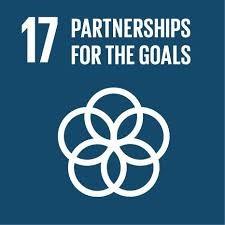- عربي
- 中文
- English
- Français
- Русский
- Español
The United Nations system – Private sector partnership arrangements in the context of the 2030 Agenda for Sustainable Development
The 2030 Agenda for Sustainable Development provides unique momentum for a renewed engagement of the private sector. The report identified several ways of improving the existing arrangements for cooperation with the private sector as to reflect the holistic, integrative and universal approach of the 2030 Agenda. The report looks into the supporting framework provided by the United Nations system to facilitate the contribution of the private sector with regard to several aspects: legal, financial, administrative, operational and motivational. The report favours system-wide solutions that will fuel permanent and reliable forms of inter-agency interaction, resource pooling and knowledge sharing.
The report addresses 12 recommendations. The General Assembly was recommended to consider an update of the “Guidelines on a Principle-based Approach to the Cooperation between the United Nations and the Business Sector” and a revision of the current mandate of the Global Compact. The Economic and Social Council should invite the Executive Secretaries of the regional economic commissions to initiate and institutionalize a systematic and regular consultative dialogue with the private sector.
One recommendation is addressed to the Secretary-General is his capacity as head of the United Nations Secretariat, within his current reform initiatives: to streamline and clarify the division of labour and the specific lines of responsibility and accountability within various departments of the Secretariat, as to provide advice on, guide and facilitate partnerships.
Other recommendations fall also within the prerogatives of the Secretary-General, but their implementation will have system-wide implications and all the United Nations organisations should be consulted: i) elaboration of a set of rules and operational guidelines designed to match the specific needs of the partnerships with private sector entities, allowing for greater flexibility, simplification of procedures and speed in reaction; ii) coordination of a unique, system-wide package of information about the opportunities for partnerships offered to the private sector by the Sustainable Development Goals; iii) a multi-stakeholder mechanism of consultations and solution-seeking at the country level, steered by the Resident Coordinator, in which the businesses are involved from the beginning in the design of partnerships in support of the 2030 Agenda; iv) coordination of the existing innovation initiatives building on existing and ongoing efforts by the United Nations Innovation Network; v) enhancing the role and responsibilities of the Private Sector Focal Points Network with regard to sharing knowledge and promoting good practices.
One of the most reformative recommendations concerns the setting of a system-wide vetting system based on a common database on the profiles and performance of the businesses that are involved in partnerships with the United Nations and a minimum set of common standard procedures and safeguards for an efficient and flexible due diligence process.
The United Nations System Staff College Knowledge Centre for Sustainable Development, in cooperation with the International Trade Centre, is expected to host a system-wide online platform to facilitate communication with micro, small and medium-sized enterprises.


